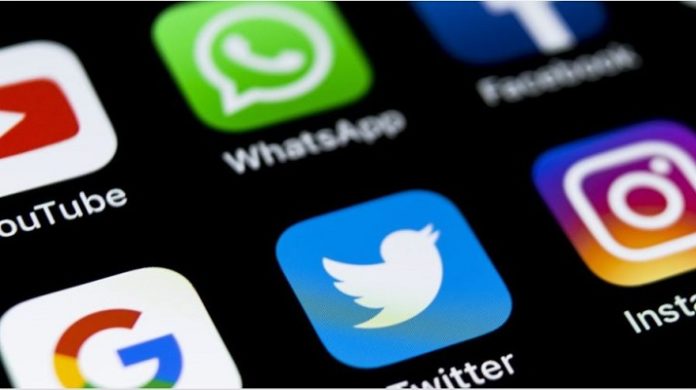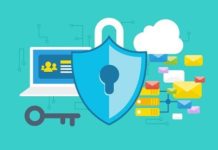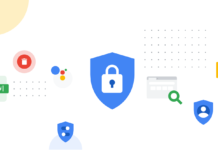There’s so much to love about social media today, but, at the same time, there’re a lot that can go wrong with it. Many of us spend countless of hours on the internet a day, posting our entire lives on multiple social media platforms.
They say that sometimes less is more. And, I believe that is the correct rule to abide by.
Posting too many personal details online makes it extremely easy for cybercriminals to hack into your accounts.
For instance, what happens when you post something that is extremely personal? Like where you live, or the name of the place you visit on a daily basis?
In the same way, if you post almost every detail online, this gives a hacker much leverage over you, using the information you might have unconsciously entered on your social media profiles.
What kind of cyber-attacks are you looking at?
There is something called a credential-stuffing attack, where several attempts are made to hack into your accounts, using previously hacked or leaked credentials, from older media accounts. This is all that’s required in order to break into other accounts.
Now, keeping that in mind, picture at least 15 members from the NFL team, who have had their social media accounts hacked in Jan 2020.
And, it did not stop there. Along with that, other Twitter accounts that had been infiltrated belonged to media giants like Netflix and Marvel. Even the twitter accounts of Google’s chief executive Sundar Pichai and Twitter’s founder Jack Dorsey had been tipped into.
But, why would I get hacked?
The question is not about why anyone would choose you among 5 other people, but rather on “How easy is it to hack you if bigger accounts were simpler getting into?”
Have you heard of phishing scams?
This is one of the most common ways to hack into someone’s account. Hackers will strike by sending you emails with either link you can click on or asking you to hand out personal information. Some of the information asked for can include your email IDs, passwords, or account details.
However, the point is not about why you among many, would fall for it, but rather on “How will you fall for it?”
The thing is, because you post almost every bit of yourself online, without any cybersecurity measures, hackers can get a full front row seat to all the details of your life, like where you live, your favorite pet, where you like to hang out, what organizations interest you, or the name of the place you work at etc.
Phishing scams can be posed as a letter from one of the organizations you support, or as an email from the company you work for. It is because these scams are so well-played out, you might just follow through with them, without thinking twice.
How to prepare for future cyber-attacks
So, to avoid any future attacks or maybe lower your chances of getting pulled in, here are a few ways to avoid it:
Use strong passwords
Firstly, never use simple passwords, and always update them regularly. Most people around the world have their accounts hacked due to weak passwords.
The hackers who infiltrate your accounts probably knew your password was your favorite food, color, or pet name. Always use lower and higher case letters, and add in numbers and symbols. Also, write it down on a piece of paper that only you have access to, instead of saving them on your phones. That wouldn’t be so wise.
Double factor authentication
Use 2 or double-factor authentication. This is very important when someone makes multiple attempts to try and hack you. When this happens, you’ll be notified by email and your mobile number; asking whether it was you who was trying to log in or request a password change. Two-factor authentication is definitely one of the best ways for you to add double protection.
Use a security software
Invest in a good privacy and security tool like a VPN. Using one is extremely important. It’ll help encrypt your connection, block out malicious emails, or give you privacy over the internet.
A VPN won’t provide you with government-grade online security systems, but it’ll help lower the risks of you getting hacked in the future. It could also slow down the process; giving you enough time to come up with the next solution.
Avoid the “free” WiFi
One of the fastest ways for anyone to get all their media accounts hacked is by carelessly connecting to an unknown WiFi source. This is equally dangerous when you use an unknown source and log into your social media accounts or any account for that matter.
Most free WiFi hotspots are only put there to hack into your systems as soon as you connect. If ever you’re tempted to use a public WiFi, make sure you have security software installed.
Update your device and apps
This is one of the most important steps. Downloading the best app for your device won’t do you any good if it’snot up to date. Older versions of apps or a device’s inbuilt security systems are extremely vulnerable. This makes it easier to hack.
If you’ve noticed, we often receive phone update messages asking you to either clean some files or update your apps or phones system to the latest version of security. That is there for a reason. Don’t skip through them.
Don’t over share on social media
I know how extremely difficult it can get when you’re given this huge platform, where you can share all your thoughts and ideas. As tempting as it is, don’t do it. Limit the amount of things or personal information you put online. Hackers can easily use that kind of information against you.
Don’t adhere to suspicious links or messages
If you feel like the email, call, or text you receive is a red flag, don’t answer to it. If it’s important or from someone you know, you’ll receive a confirmation text or call that identifies the person or company.
Report it
If you feel like you’re being spammed, or receive multiple messages, emails, calls, etc. from unknown sources through your media account, always report it to an authoritative body or website. They will try to run you through a few measures on how to address the issue.
Always use known sources
Don’t download social apps that you have no clue about. Do you know that around 60% of social media apps are all scams? It infiltrates your device, latching onto important files. Always do a little research and see the best apps to use. You can even lookup other user experiences/reviews before settling. It is always good to go through the review sections.
To conclude
There were around 7.9 billion data hacks during the whole of 2019, so what makes you think that you’re one in billion? There is so much that you can do to stay cyber-safe on the internet, protecting your multiple social media accounts. Simply start by first reading a blog or two about how to get started. Inculcate simple steps into your daily lives. Cybersecurity matters. It’s definitely what keeps you safe.








